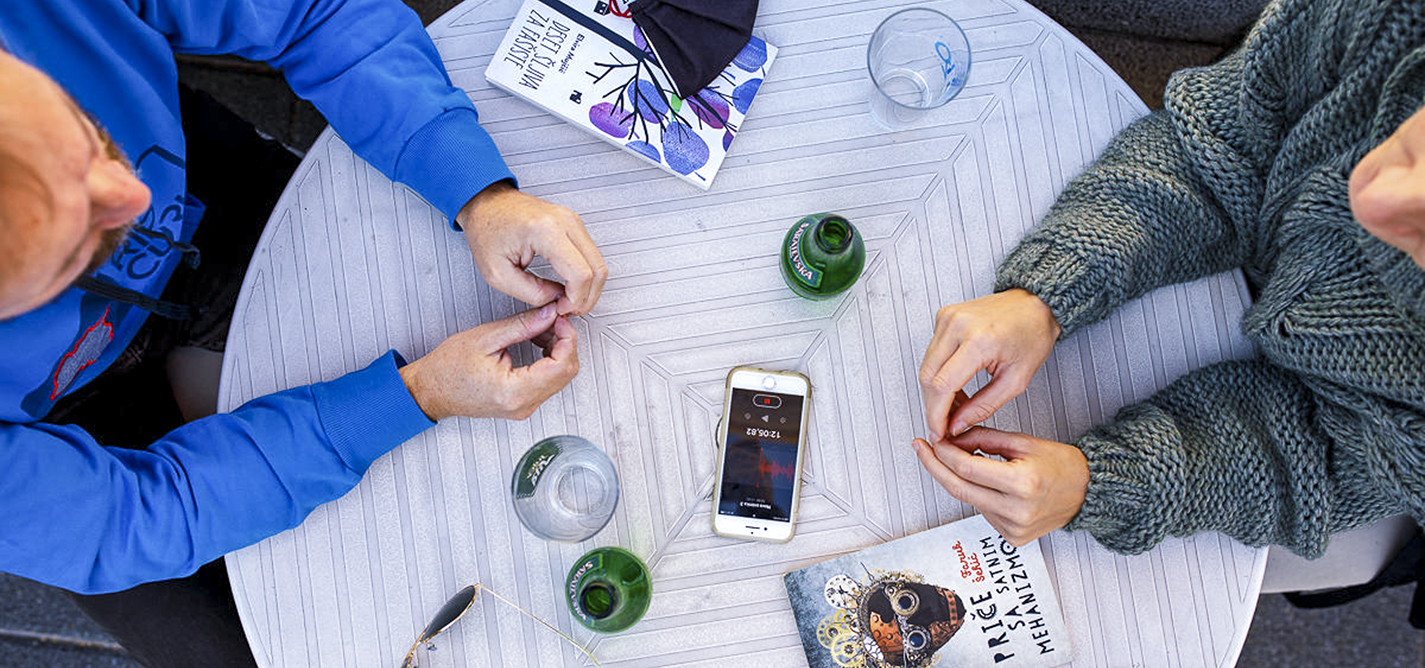
Elvira Mujčić: Have you ever seen Bosnia through the eyes of a woman?
Faruk Šehić and Elvira Mujčić in conversation about the world they live in.
|24.12.2020
|
The narrator is someone whose body is gridded with veins of gold.
I'm not a person who writes with ease. I need a lot of time to write something. Then, I prune the text.
Elvira MujčićExile is a time that doesn't pass; it has completely stopped.
Elvira MujčićFor me, translation means an opportunity to go to another country, meet other readers; your book becomes a different book.
Faruk Šehić
Faruk Šehić
Faruk Šehić is a writer born in the Socialist Federal Republic of Yugoslavia (SFRY). During the war, he was a member of the Bosnia and Herzegovina Army, when he was also heavily wounded. Literary critics think of him as the voice of the so-called runned-down generation X. He received awards, while his work has been published in many languages. He lives in Sarajevo.
This story was originally written in Serbian.